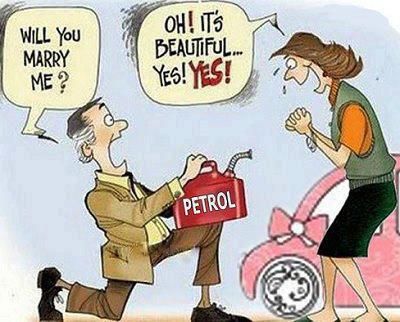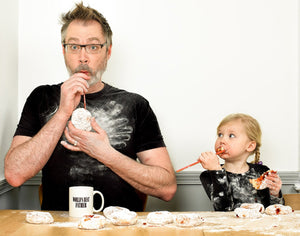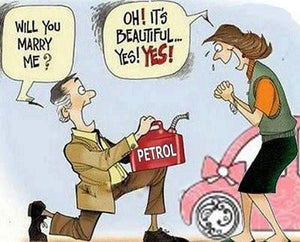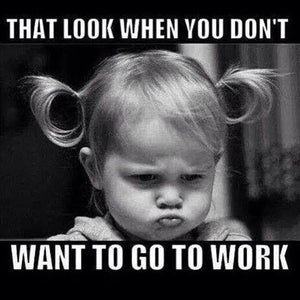PETROL HIKE: Why It Happens and What You Can Do About It

Ai... our honeymoon with Cyril was short, huh? South Africans are feeling under assault at the moment, with yet another drastic petrol price increase. But what causes it, how does it affect you, and what can you do about it?

WHY ANOTHER INCREASE IN FUEL?
In a nutshell, the cost of crude oil rose in volatile trade, as indications of stronger global demand exceeded constant concerns about a supply surplus. This is largely due to the continued fighting in Libya, where rival forces continue to clash. The Islamists are still locked in tit-for-tat air strikes on oil fields and an airport, against forces aligned with General Khalifa Haftar.
Besides the fluctuating price of crude oil though, several other factors also influence the price we pay when we fill up our cars. Here’s what also affects it:
1. Rand depreciation.
Because oil is traded in Dollars, the Rand/Dollar exchange rate affects how many Rands we need to pay for a barrel of oil. Over recent months, the Rand has depreciated against the Dollar, which means that even though the petrol price may have dropped, it actually now costs more Rands to buy the same amount of oil. The net effect of this in recent months is a drop in the petrol price, but not as much as if the Rand had kept its same value.
2. Fuel levies.
The National Roads Act of 1971 allows the South African government to collect a fuel levy from every litre of fuel that’s sold. Since 1998, the government has collected over R240 billion in this way. Ahead of the new budgets soon to be released, it’s expected that taxes on petrol will be increased in order to pay for budget items such as the failing e-toll system.
3. Wholesale margins.
Fuel wholesalers in South Africa consist of the seven major oil companies in addition to around 600 independent wholesalers. The government sets the wholesale margin, keeping it stable at around 15%.
4. Retail margins.
There are approximately 4600 service stations in South Africa who all need to make a profit on the petrol they sell Like the wholesale margin, South Africa’s petrol’s retail profit margin is fixed by the Department of Energy, and is determined by individual costs of each service station including things like rental, interest, labour, overheads and entrepreneurial compensation.
5. Transport and delivery costs.
Petrol and diesel are transported to depots and petrol stations by pipelines, rail, sea and road, the costs for which are then added on to the petrol price. This explains why fuel costs are less in coastal cities where there are ports nearby, as opposed to inland cities where fuel needs to be transported further via trucks.

HOW DOES THE PETROL PRICE AFFECT ME?
A whole lot, actually.
- Firstly, you will have less free cash to spend on luxuries such as clothing, eating out and leisurely activities such as holidays (and the like).
- As the cost of fuel continues to increase, the cost of getting basic necessities - particularly food - invariably goes up too, so get ready for a bigger grocery bill for starters.
- If you use public transport, things will still be fairly stable as incremental increases are controlled by the government, but be prepared to pay slightly more than you were initially budgeting for.

There is good news, though: One thing which you won't need to worry about is the impact on electricity prices. Since Eskom is so heavily dependent on coal (an estimated 77% of our total energy needs are met by coal alone), thankfully things are not set to change here!
WHAT CAN I DO TO SAVE MONEY?
There are the obvious ones of carpooling, organising lift clubs for kids, planning trips carefully, using the cheapest public transport you can, and robbing a petrol station (we are kidding about that last one, but we thought about it a LOT).
One of the major but easy ways you can save money is by either buying in bulk, or buying wholesale. Your essential cleaning products are a great place to start, as you can hardly cut back on toilet paper and washing powder... but you CAN continue to get the same quality products at a cheaper price through www.cleaninghub.co.za!

Visit our site today and see the difference in buying your essentials from us. Maximise savings by considering a stokvel, where each member contributes towards the cost of buying in bulk, and gets their essentials at a fraction of the expense.
- Georgina Roberts






Comments 0